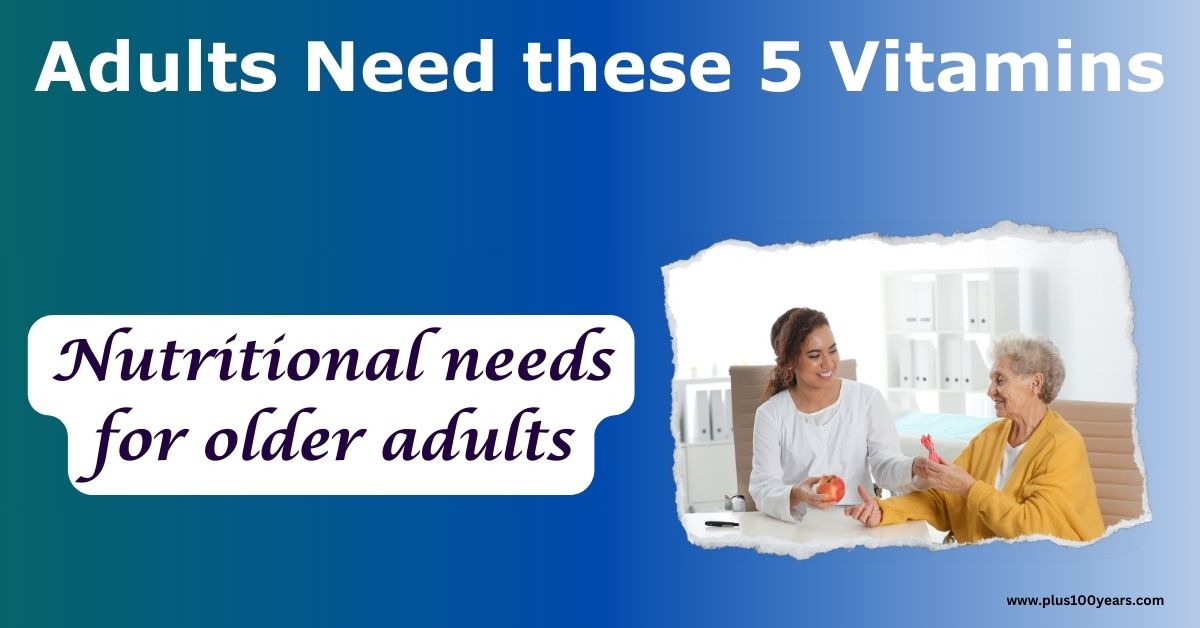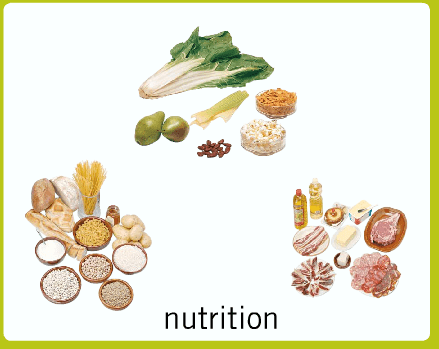
Are you looking for Nutritional needs for older adults? If yes, then you are in the right niche.
With every passing year, older adults' bodies tend to weaken, thus it has to be fuelled with some nutritional foods.
With the start of old age, the normal meals that have been fixtures on our blackboards for decades can unexpectedly become health hazards, thus the intake is nutritional foods plays a major role.
Here, the term "nutritional" means a process through which human body collects metabolism, growth& repair from food consumption.
Nutrition is a comprehensive term where food is achieved by a controlling process.
As a person becomes older, the body's dependency upon external nutrient sources increases to maintain optimal health.
Thus, eating the right foods & adding nutritional supplements can assist in ensuring the body's needs are met.
Importance of Nutritional needs for older adults
Did You Know
"According to the medical experts Nutritional needs for older adults is must.The nutritional foods include more calcium, vitamin D to assist & maintain bone health.
It is suggested to have three servings of vitamin D-stimulated low-fat or fat-free milk or yogurt every day".
Other calcium-rich foods subsume refreshed cereals & fruit juices, dark green leafy vegetables & canned fish with soft bones also play tops the chart of Nutritional needs for older adults."
Receiving sufficient nutrition is a challenging task as you get older. With increasing age, the number of calories an individual requires starts to decline.
For every calorie, an individual intake should be packed with nutrition to hit the mark.
Good nutrition coaching is vital at every stage, from infancy to late adulthood.
The fundamentals of a balanced diet continue the same but the Nutritional needs of older adults change as they grow older.
No matter what individual's age, it is never too late to onset the living a healthier life.
Individuals never outgrow the need for healthful eating. Good nutrition is vital at every stage, from infancy to late adulthood.
The fundamentals of a balanced diet continue the same but the Nutritional needs of older adults change as they grow older.
No matter what individual's age, it is never too late to onset the living a healthier life.

Irrespective of your age i.e. either 50 or 85, food choices affect your overall health in the years ahead.
The danger for a few diseases associated with aging like osteoporosis, heart disease, and diabetes can be condensed with a lifestyle that subsumes healthy eating.
Good nutrition also assists in the treatment & recovery from illness. When healthy living can't turn back the clock, it can assist you to feel good longer.
The intake of healthy food means consuming a variety of good foods every day. Food gives energy, vitamins, protein, fiber, minerals, and water for good health.
If your body is not getting the right amounts of nutrients, then it leads to several factors which specify an increased risk for poor nutrition such as:
- Ill health
- Unexpected weight gain or loss
- Poor eating habits
- Poor dental health
- Taking medications
- The inability to care for yourself
- Loneliness and lack of social contacts
- Economic Hardship
The Nutritional needs of older adults are usually similar to those of younger adults.
Nutritional needs for older adults
Eating right &remaining fit is significant irrespective of your age. As people get older, their bodies have different needs, so it becomes important to intake Nutritional foods for good health.
The following are some of the Nutritional needs of older adults.
1. Calcium & Vitamin D
Older adults require more calcium & vitamin D to assist in maintaining bone health. The intake of three servings of vitamin D-fortified low-fat or fat-free milk or yogurt each day is important.
Other calcium-rich foods subsume stimulated cereals & fruit juices, dark green leafy vegetables & canned fish with soft bones.
2. Vitamin B12 for Adults
Several people who are over 50 do not get sufficient vitamin B12. Fortified lean meat, cereal, and some fish & seafood are some of the sources of vitamin B12, consume them.
3. Fiber for Adults
Intake of more fiber-rich foods to remain Healthy Fiber also helps in lowering risks for heart disease, controls weight & prevents Type 2 diabetes.
The consumption of whole-grain bread & cereals, and more beans & peas together with fruits & vegetables, provides fiber.
4. Potassium for Adults
Increasing potassium with decreasing sodium (salt) lowers the risk of high blood pressure. Fruits, vegetables & low-fat or fat-free milk & yogurt are good sources of potassium.
Know Your Fats
Foods low in saturated fats &Trans fats assist in reducing the risks of heart disease. Most of the fats you consume must be polyunsaturated & monounsaturated fats.
Hope you got valuable information about this post for your diet. kindly comment and share this post with your near and dears.
"We welcome your comments on this Post"
 All you need to know about Nutritional needs for older adults
All you need to know about Nutritional needs for older adults 
Add new comment